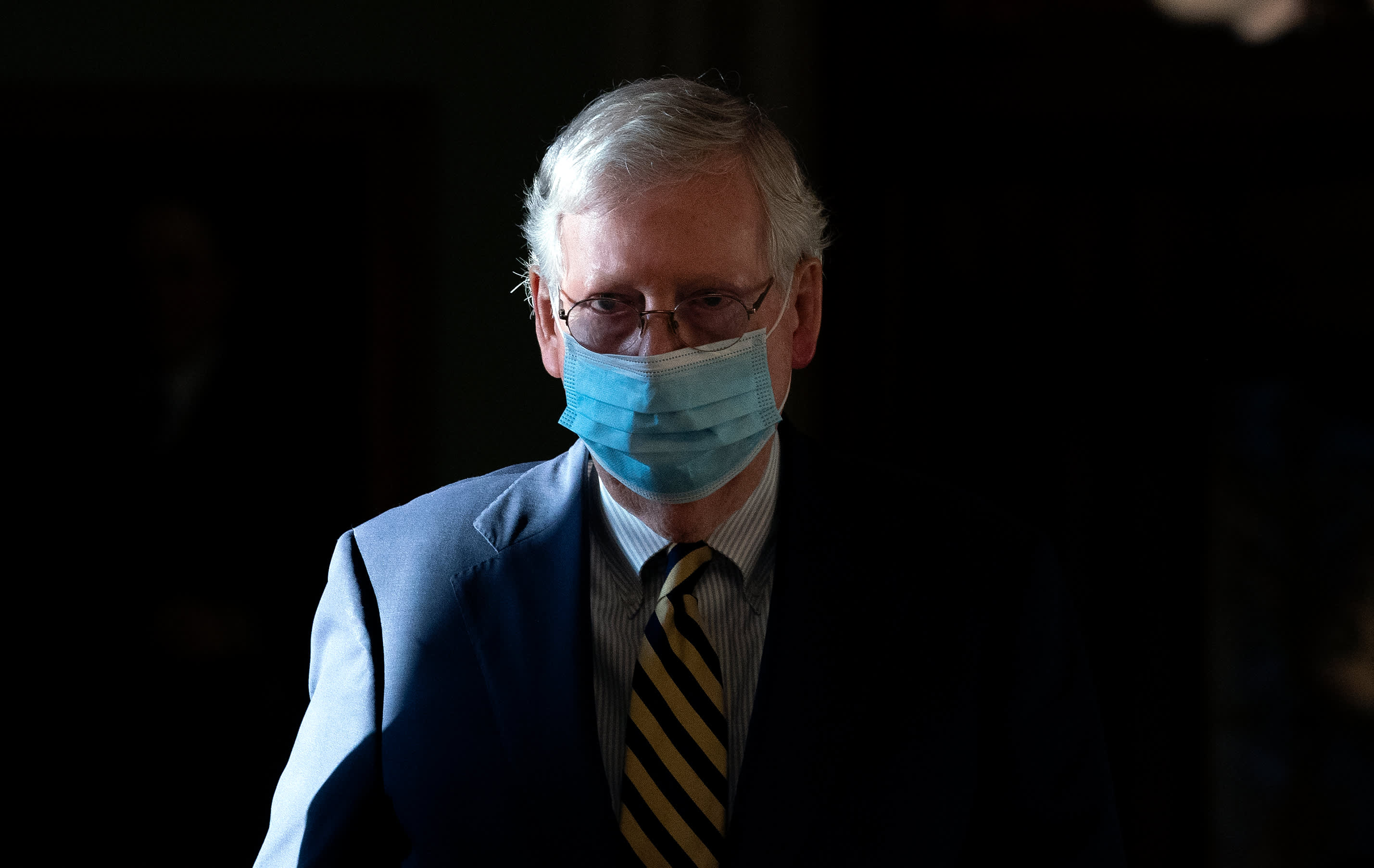Senate has more than enough time to confirm Trump Supreme Court nominee, McConnell says

Majority Leader Mitch McConnell said on Monday that the Senate has more than enough time to confirm President Donald Trump's Supreme Court pick before the end of the year, or even before Election Day.
"As of today there are 43 days before Nov. 3 and 104 days before the end of this Congress," the Kentucky Republican said on the Senate floor. "The Senate has more than sufficient time to process a nomination. History and precedent make that perfectly clear."
McConnell's comments come just three days after the death of Justice Ruth Bader Ginsburg, who died on Friday from complications due to pancreatic cancer. Ginsburg sat on the Supreme Court for 27 years.
The fight over the nomination has consumed Washington with just over six weeks to go until Trump and former Vice President Joe Biden face off at the polls. Recalling the bitter fight over Justice Brett Kavanaugh in 2018, McConnell suggested an "even more appalling sequel" would be in store.
A confirmation could secure Trump his third justice on the nine-member panel, solidifying a 6-3 conservative majority, with dramatic implications on issues such as health care, guns, voting rights and the power of government regulators.
Democrats, still energized by McConnell's refusal to hold a vote on former President Barack Obama's nominee in 2016, have likened the battle to an existential fight.
McConnell pledged within hours of the announcement of Ginsburg's death to hold a vote on her successor, and Trump is expected to name the person by the end of the week. Trump has repeatedly said his preference is for a confirmation vote before the election.
McConnell did not pledge to hold a vote before Election Day, though he said it could be done. He did commit to hold a vote by the end of the year.
"There was clear precedent behind the predictable outcome that came out of 2016," he said, referring to his refusal to hold hearings for Obama's nominee that year, Merrick Garland. "And there's even more overwhelming precedent behind the fact that this Senate will vote on this nomination this year."
If Trump names his nominee on Friday or Saturday, as he said he would do on Monday morning, a confirmation vote by the end of the year is well within the typical time frame for Supreme Court confirmations. But a confirmation before the election would be historically quick.
Going back to the 1970s, the average amount of time it takes between a nomination and a final confirmation vote is about 70 days, according to the Congressional Research Service.
Ginsburg's own confirmation was on the speedier end, at 42 days. McConnell noted that Ginsburg could have been confirmed twice between Monday and the end of the year.
The 19-day confirmation process for Justice John Paul Stevens, who served between 1975 and 2010, "could have been played out twice between now and Nov. 3, with time to spare," McConnell said.
McConnell, though, faces unique problems corralling a vote on a nominee before Election Day. Two Republican senators, moderates Susan Collins of Maine and Lisa Murkowski of Alaska, said over the weekend that they opposed such a plan. With 53 seats in the Senate, McConnell can only afford one more defection.
Another element is that Ginsburg herself expressed her wish not to be replaced before the election in a dying statement.
"My most fervent wish is that I will not be replaced until a new president is installed," Ginsburg told her granddaughter, according to NPR.
Democrats have seized on Ginsburg's statement as they have pressed the case to delay a nomination vote.
During an address in Philadelphia over the weekend, Biden called on Republicans in the Senate to "heed her final call to us, not as a personal service to her, but as a service to the country, our country, at a crossroads."
Source
Check Our More
No comments